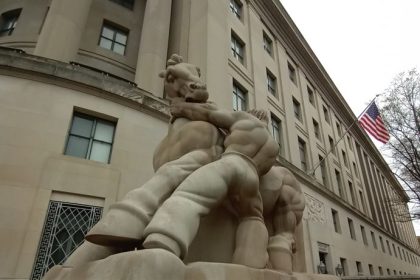FTC Accuses Credit Karma of Making False Claims

WASHINGTON — The Federal Trade Commission announced Thursday it is going after the credit score and report company Credit Karma for telling people they were approved for credit when they were not.
“Credit Karma’s false claims of ‘pre-approval’ cost consumers time and subjected them to unnecessary credit checks,” said Samuel Levine, director of the FTC’s Bureau of Consumer Protection, in a statement. “The FTC will continue its crackdown on digital dark patterns that harm consumers and pollute online commerce.”
The bipartisan commission unanimously found the company violated the Federal Trade Commission Act because the company was “deceiving customers” through marketing materials sent February 2018 through April 2021.
The website and application people use to check their credit scores, Credit Karma, describes itself as a tool that “helps members make financial progress” and “fundamentally disagrees” with the commission’s allegations, according to a statement.
However, in the commission’s complaint, it lays out allegations of the credit checking company collecting about 2,500 data points on people including credit and income information and then using that information for marketing and advertising purposes for third-party financial services.
“For many of these offers, almost a third of consumers who received and applied for ‘pre-approved’ offers were subsequently denied based on the financial product companies’ underwriting review, i.e., the actual process by which they made approval determinations.
“Additionally, in some instances, roughly a quarter of consumers were denied approval because of disqualifying financial and credit characteristics, like insufficient credit histories, account charge-offs, and bankruptcies,” the commission wrote in its complaint.
“Further, the financial product companies’ underwriting review includes a ‘hard inquiry’ on consumers’ credit reports, which, in many instances, lowered the credit scores of those whose applications were denied.”
The commission is seeking $3 million that it will give to Americans hurt by the company’s practices. It is also asking the company to stop sending these deceiving emails while also preserving the records of what it calls a “dark pattern” of deception.
The company contends it does not profit from these denials, instead saying it only gets paid when customers are approved for credit cards.
“Because banks and financial institutions use massive amounts of data and machine learning models to approve or deny people for financial products, it can be nearly impossible for the average American to have any indication of whether they are likely to be approved for financial products. This lack of industry transparency can lead people to apply for products where they are likely to be denied,” the company said in its statement.
Madeline can be reached at [email protected] and @MadelineHughes
























